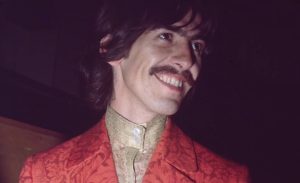The Greatest Song Recorded Backed by Science

via Michal Wojdynski / YouTube
Music has a way of touching our souls, evoking emotions, and sparking memories. But what makes a song truly great? It’s a question that has intrigued both music enthusiasts and experts for ages. Delving into this intriguing blend of science and art, we explore the hidden secrets that give rise to a hit song.
Music’s allure lies in its ability to stir emotions and transcend language barriers. Yet, defining the elements that create a hit remains a puzzle. The diversity of personal preferences makes it a complex endeavor, but some songs have the universal appeal that begs investigation.
Enter Gizmodo
A trailblazing website that decided to unravel the enigma. Gathering a group of music lovers and brain scientists, their mission was to uncover the alchemy behind a truly unforgettable song.
When Emotions and Science Converge
Daniel Glaser, an expert from King’s College London, presented a fascinating perspective on the matter. For him, the key lies in emotional reactions. If a song prompts feet to tap, smiles to emerge, or tears to flow, it signifies a connection has been established. While technology can provide data, genuine emotions are the ultimate indicators.
But the enchantment of a song isn’t solely fueled by emotions. It’s the harmony of structure, rhythm, lyrics, and beats. When these elements blend seamlessly, a song transforms into a captivating experience.
The Greatest Song Recorded: “Africa” by Toto
After a voyage through discussions and studies, Gizmodo revealed their musical revelation: “Africa” by Toto emerged as a standout song. While not universally crowned the best song, it captured something exceptional. The rhythm, lyrics, and emotional resonance intertwined, creating an irreplaceable allure.
Professor Dave Poeppel delved further, highlighting that Toto was no ordinary band. Comprising accomplished musicians, they crafted songs admired by peers. This admiration, Poeppel suggests, played a significant role in the song’s charm.











